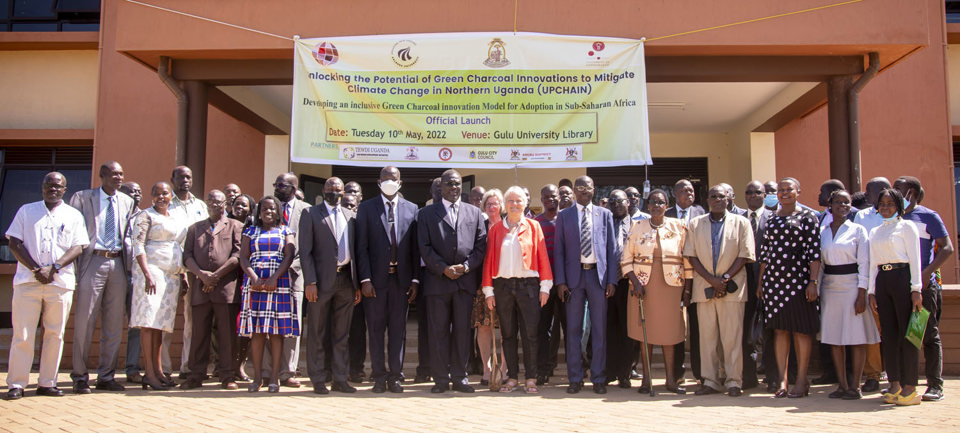The solution is green charcoal
UPCHAIN aims to develop a green charcoal innovation model to support a replacement for charcoal in Uganda. Green charcoal is made from residual products from the fields, such as corn stalks or rice husks, and is therefore a sustainable alternative, that also has less health-related consequences when burned.
Green charcoal is already in use in Uganda in a smaller scale and in pioneering projects, but the collaboration between Danish and Ugandan researchers and other operators in Uganda shall facilitate research and a more widespread adoption of green charcoal for cooking. The project originates in Uganda, but the potential is global.
UPCHAIN’s research focus is about changing both social, cultural, and technical practices. For example, UPCHAIN will map the quantity of agricultural waste in the individual households and uncover the calorific value of the green charcoal produced from the various residual products. In collaboration with local technical schools and entrepreneurs, Gulu University in Uganda will develop small machines that can produce the green charcoal. A production machinery will be created, and business models developed, which shall enable the families to buy back the green charcoal after they have handed in their green residual products to the green charcoal production.
The resources are available locally
The intention is to develop an industry in the local areas and business models so that households and institutions can afford to change their cooking traditions. Gulu University, for example, is responsible for developing the machines in collaboration with local technical schools, so that they can take over production at a point. It is all about using the local expertise and resources and to facilitate development in collaboration with the communities.
From a design-oriented and ethnographic angle, researchers will also uncover cultural barriers and investigate what types of green charcoal consumers want and for example be able to define the ideal size of the green charcoals to suit local stoves and fireplaces. The quality and forms of the briquettes must fulfil the needs of the households and the kitchens as a prerequisite for being adopted. The researchers are therefore interested in identifying the needs of those in charge of cooking, typically women, and will investigate gender dynamics and socio-cultural issues related to cooking and green charcoal adoption.
UPCHAIN contributes to DANIDA's goal of reducing poverty through inclusive and sustainable economic development
According to Lone Dirckinck-Holmfeld, reducing poverty is also extremely central to the project. Thus, UPCHAIN offers a direct way of achieving the strategic goals as formulated in the Danish Country Program, which DANIDA under the Danish Ministry of Foreign Affairs stands behind, especially objective 1 which is about poverty reduction through inclusive and sustainable economic development. Explicitly, UPCHAIN's approach is aimed at entrepreneurs and companies and is about developing business models for the production and sale of green charcoal. But according to Lone Dirckinck-Holmfeld, the project also follows a more informal approach:





